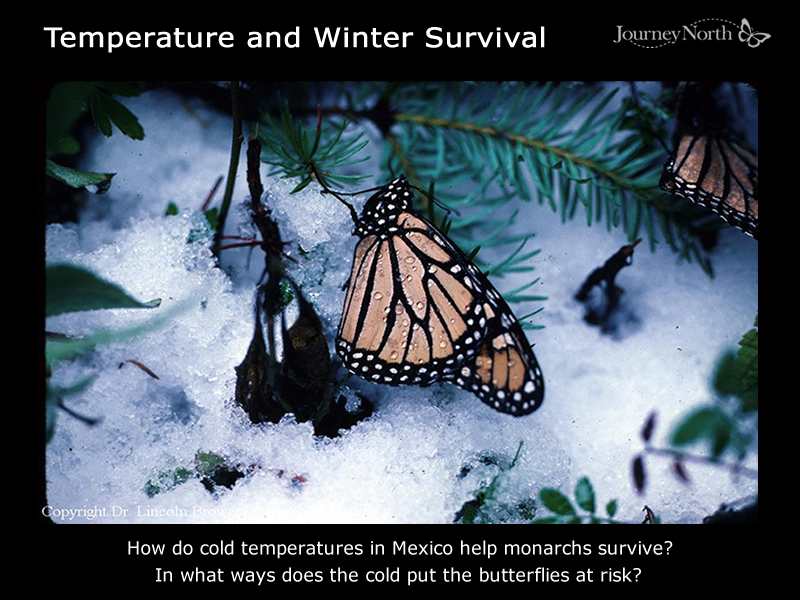Teaching Suggestions
Temperature
and Survival
The Balance Between Warm and Cold
Overview
It can be warm during the day at the monarch's winter home in Mexico, but at night it's as cold as the inside of your refrigerator. This is surprising! Why do monarchs migrate long distances to overwinter in a place that is so cold? This slideshow explores a key question:
|
Lesson Goals
- Explore how temperature conditions affect overwintering monarchs.
- Investigate how the forest protects overwintering monarchs in Mexico.
- Discover the adaptations monarchs
have for surviving in cold temperatures.
Examine Cover Photo
Make Pre-reading Predictions As a class read through the pages of the slideshow together, stopping occasionally to spotlight key ideas and ask questions. Encourage students to share questions sparked by the information and images.
|
Distribute the Risks/Benefits Note-taking Chart and have students find and record facts from the text.
Encourage students to use their completed chart to write Discovery Statements that summarize what they learned. |
Use Guiding Questions to spark discussions about key concepts. Be sure to highlight questions about monarch adaptions. Many of the monarch's adaptations to cold are behavioral adaptations: shivering, climbing, clustering, basking, migrating to Mexico. |
Revisit the line graph from the slideshow that shows the average low temperatures at the overwintering sites. Use the Questions for Analysis to help students explore the data. Challenge students to write Discovery Statements to summarize what they learned from this temperature graph.
|
Dr. Lincoln Brower says the monarch's forest is like an umbrella and a blanket. Analogies help us understand new things because they draw upon our past experiences. This journal page has students use analogies to describe how the forest protects monarch butterflies.
|
Make your own booklet using information you learned about monarchs, temperature and survival. The blank fact book has photos, headings, and space for students to write their own text. |
|










